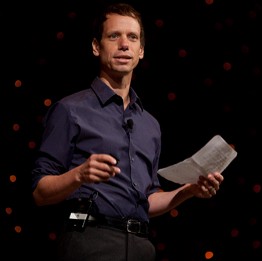If you organize long enough, you will step into stories worthy of the silver screen. David and Goliath battles that might not see the light of day, unless an organizer stepped on scene. Still, few of us will find ourselves in a situation as breathtaking as the one Saket Soni does when he and his team organize the escape of hundreds of Indian guest workers from a labor camp in rural Mississippi.
Fortunately, Saket, a long-time organizer and the director of Resilience Force, turned this organizing story into a book. The Great Escape: The True Story of Forced Labor and Immigrant Dreams in America is a thriller. It is the story of capitalism and race, though Saket never uses those words, one that takes us into the culture of India and America and brings to life the galvanizing power of food and maybe especially tea.
The book, just released, is all of these things and more. But I am an organizer, and The Great Escape is the most page-turning book about organizing that I have ever read. In it, there are a dozen scenes that are absolutely iconic organizing situations, moments that seasoned organizers will recognize and budding ones will strive for.
The workers have been recruited to the United States by the company Signal to work as welders and pipefitters, constructing and maintaining oil rigs in the Gulf Coast. They’ve been told, under false pretense, that if they cough up $20,000, which most have to borrow, they will get work in the US, and most importantly receive “green cards,” the golden ticket to moving their family to America. Soon after arriving at a Mississippi labor camp, it becomes clear the living conditions are untenable and the green cards are not forthcoming. They’ve been had. Enter the organizer. Saket meets them in this impossible situation, and they start to organize.
Here are just a few moments from the book, where the fundamentals of organizing jump off the page.
One fundamental I like to talk about is to start organizing around immediate, meaningful things, using those smaller wins as stepping stones to the bigger fights. Saket illustrates this in the story of Jacob Joseph.
The thing the workers most want is for the company to deliver on its big promise of green cards. But that is not where the fight starts. Soon after arriving at the labor camp, Jacob Joseph Kadakadapally, a pipefitter from Kerala, India, can’t stomach the fact that there is no tea. For someone from India, it is incomprehensible that this essential staple is not provided. While every worker is angry about this situation, it’s Jacob Joseph who begins to kick up dust, agitating the work camp staff at every turn. He needles and presses, unwavering in his push. Management decides that holding out is not worth enduring Jacob Joseph’s daily barrage of complaints. They give in and provide tea. A natural leader has emerged.
Another fundamental: In organizing, winning begets winning. With the demand for tea now in hand, Jacob Joseph moves to food. The food he and his fellow workers are being served is cold rice, often still frozen. The men defrost their rice by sucking on it. Again, Jacob Joseph creates tension, pressing the work camp staff until they install microwaves. The workers are winning, and with the first two victories in hand, they push for an Indian cook, to be chosen by the workers themselves. It takes time, but the company relents. These three smaller but meaningful wins in the workers’ daily lives build the collective confidence of the group, setting the stage for the jaw-dropping acts of courage that follow.
Meanwhile, Saket is holding secret meetings with workers at a church near the workcamp. He is seeding the idea of not only individual leaders but collective organizing, and organizing is what begins to take root. The company senses trouble brewing, and while they know nothing of Saket’s involvement, they do know that Jacob Joseph had to be an instigator. So they decide to deport him.
A group of guards detain Jacob Joseph, place him in a work camp office with plans to put him on a plane back to India later that day. He is about to be out of a job, lose the $20,000 he has paid for the job and a green card, and be sent home in disgrace to face his family. The guard who will deport him steps outside, and Jacob Joseph grabs the phone and calls Saket’s cell. Amazingly, he picks up. Saket walks Jacob Joseph through a lightning-quick power analysis. They agree that if Jacob Joseph is put on that plane, he will never come back to America and never get his green card or his money back.
With Jacob Joseph locked in the office, the guards go to collect their captive’s belongings from his sleeping trailer. For Jacob Joseph, it seems the end is near. But from inside the locked office, speaking in Malayalam so the company officials can’t understand, Jacob Joseph directs a strike, on the spot. His fellow workers surround the office and start chanting. The company security is at a loss: they have not faced this level of civil disobedience and have no marching orders from management on how to respond. By the time they quell the strike, hours later, the plane that was to have taken Jacob Joseph back to India has left. The organized workers have bought Jacob Joseph time, and he lives to fight another day.
Another fundamental of organizing is building members’ ownership of the work. That plays out when Saket recruits his next leader. Jacob Joseph has survived but has been expelled from the camp. Saket needs another leader, someone inside with courage and clarity. Sitting across from Rajan Pazhambadakode, Saket senses he has met that worker. Rajan has been attending Saket’s organizing meetings but sitting in the back, taking stock of Saket. As they converse, it is easy to see that Rajan is intrigued but not yet convinced by the plan to organize. He’s testing Saket. They begin kicking around strategy, with Saket listening as much as talking. As they rethink and refine the original idea, Rajan offhandedly refers to the emerging plan as “our campaign.” The meaning of this is not lost on Saket.
The most essential thing we do in organizing is get people to do things they had not imagined until we came into their lives. The next level is for people to own those things. That transition just happened for Rajan.
Months later, after hundreds of workers have made the unthinkable decision to escape from the labor camp and march to Washington, DC, Saket senses he may be losing Rajan, who has become an indispensable leader. Their campaign had hit some bumps in the road, big ones. Rajan, who is questioning the whole plan, says to Saket, “We’re not the same. You could pass as American. I never will.” Saket is at a choice point in how to proceed. He decides it is time to share parts of his story he has shared with no one. His journey to America, his experience of being undocumented, and his experience of choosing organizing over love. Saket was very vulnerable with Rajan, sharing something of himself and his story that more deeply connected them. Rajan now understands his organizer in a new light, and the relationship carries forward on stronger ground.
There’s an important lesson here. In organizing, we share things about ourselves in early one-on-one meetings with potential members. It’s part of how we build relationships. But we don’t share the greatest trials and traumas of our life in that first one-on-one conversation. Chances are the other person is not ready to hear ours, let alone tell theirs. When we do share it all, we don’t have much left in our pocket, not at the level of vulnerability anyway. Organizing is a long road, and we grow intimacy with the people we organize over time through the experiences we share and by unwrapping who we are when the time is right.
These stories are just the tip of the iceberg. I’ve not even discussed what it takes to help hundreds of workers escape from a labor camp, what they did next, or how the story ends. You’ll have to read the book for yourself, which I highly recommend.
The Great Escape is perfectly timed. Organizers across the country are fighting to breathe new life into the craft. The most essential organizing fundamentals jump off the book’s pages, not as a checklist or explainer but through a great story. Get a copy and join the conversation. It is oxygen for the organizer and fire for an organizing revival.

